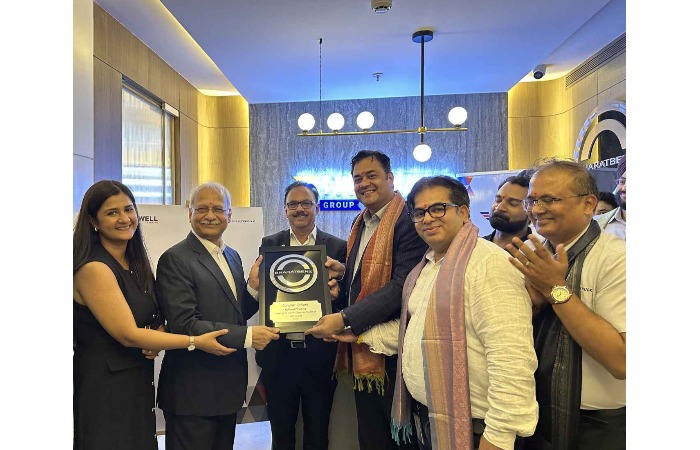Why is CE Industry Shying Away from Sharing Info

At a time when even the Supreme Court forced the Government of India to reveal the donors to the electoral bond scheme, there are associations in India, which are not maintaining the spirit of transparency, argues PRATAP PADODE.
Associations often represent the collective interests of industries, and some information, such as proprietary technologies, strategies, or trade secrets, could be sensitive. Confidentiality helps safeguard competitive advantage. While this is true, sharing information which is factual for example sales of various categories of construction equipment on a national basis, company wise, monthly, could help analyse trends in the various segments of construction. Society of Indian Automobile Manufacturers (SIAM) on the other hand makes sharing of information a pre-condition to membership. SIAM, for instance, explicitly focuses on open data sharing related to production, domestic sales trends, and export trends to create a reliable industry environment. By making aggregated data publicly accessible, SIAM ensures that stakeholders, including the government and consumers, can make informed decisions. This enhances the industry’s credibility and allows for a more accurate assessment of sector growth. It publishes regularly, on a monthly basis, the following:
- Category and company-wise summary report (monthly and YoY growth)
- Segment and company-wise production, domestic sales and exports report (monthly and cumulative)
- Sub-segment and company-wise production, domestic sales and exports report (monthly and cumulative)
- Market share analysis
SIAM’s practice has only enhanced its credibility and created trust in the members of the industry. Its allied stakeholders like auto components industry have benefitted by having access to information which provides them a window into trends. The construction equipment (CE) industry is not as important for automobile component industry as the passenger vehicle, two wheelers and commercial vehicles due to sheer volumes but while that market is facing disruption due to electric vehicles, the impacted supply chain vendors are not even considering the CE industry as a saving grace. The supply chain exclusivity comes at a price. Non-sharing of information by the CE industry can affect supply chain development too. When industry data is not readily available, it hampers suppliers’ ability to align their production capacity, raw material procurement, and innovation efforts with market needs. This lack of visibility can lead to inefficiencies, delays, and higher costs in the supply chain, ultimately slowing down growth and technological advancement.
Sharing information can significantly help in building a stronger dealer network. When manufacturers provide clear and transparent data regarding market demand, sales trends, product performance, and inventory levels, dealers can better align their strategies for stocking, marketing, and servicing products. This transparency enhances trust and collaboration between manufacturers and dealers, leading to optimised operations, better customer service, and improved sales. Additionally, it allows dealers to anticipate market shifts and plan, accordingly, making them more competitive and agile in response to changing conditions.
By keeping their supply chain vendors confidential and exclusive, CE manufacturers may indeed be missing certain cost efficiencies that could come from a more collaborative, open-source approach. While exclusivity allows manufacturers to maintain competitive advantages, protect proprietary innovations, and ensure product consistency, it can also result in the following inefficiencies:
- Limited supplier competition: By working with a select group of suppliers, manufacturers may miss out on opportunities for cost savings that could arise from a broader pool of vendors. Increased competition among suppliers could drive down prices and lead to better terms.
- Reduced innovation potential: Open collaboration with a wider range of suppliers can lead to shared innovation. By keeping supply chains closed, manufacturers might limit their access to new technologies and processes that other suppliers could offer.
- Missed economies of scale: When several manufacturers share common suppliers, the vendors can scale up production, leading to lower per-unit costs. By maintaining exclusivity, CE manufacturers may not fully capitalise on such economies of scale.
- Risk concentration: Relying on a smaller set of exclusive suppliers increases the risk of supply chain disruptions. If a supplier faces issues, it could cause delays or price increases, which could have been mitigated with a more diversified supply base.
However, many manufacturers prioritise exclusivity to ensure quality control, protect intellectual property, and maintain a unique competitive edge.
While market leaders tend to stifle smaller players, policies which require a relook to allow a democratic approach, can be dynamic only when such information is shared by the association or the industry.
Stakeholders, including consumers, regulators, and the public, benefit from transparency in industries. Keeping too much information confidential could hinder informed decision-making, regulation, and public accountability. If associations keep too much information confidential, it could lead to concerns about collusion or anti-competitive practices, particularly if industry players are coordinating in ways that might harm consumer interests. In some industries, such as healthcare, construction, or environmental sectors, withholding critical information could impact public safety or well-being, making transparency essential.
ABOUT THE AUTHOR:
The article is authored by Pratap Padode, who is Founder and Editor-in-Chief, Equipment India.













